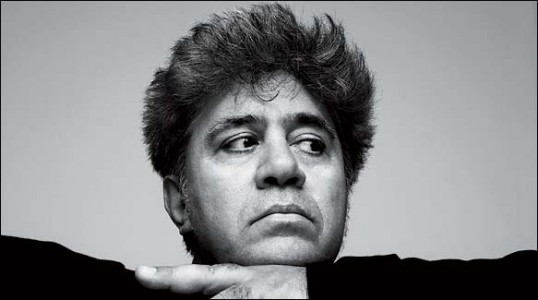
Pedro Almodóvar
Considered one of the most controversial film-makers of all times, Pedro Almodóvar was born in Spain in the 50’s. His birth date is unknown, and has been intentionally hidden by the director, with unknown reason. The same somewhat irrational and inexplicable logic is one of the most distinctive characteristics of his work.
Almodóvar comes from a lower middle-class family, who couldn’t afford his studies; because of this, he had to take several different jobs, so during the end of his teenage years and early twenties he worked for a telephone company, draw comic books, worked as an actor in theatre plays, and also and a brief experience as a leader singer in a band, performing always as a travesti, or drag queen.
Pedro Almodóvar was always very open regarding his homosexuality, and this is also a recurrent topic in his movies; this open mindset towards sexuality is also present in his work, that have a very natural approach to sex, and that emphasize its importance in human relations.
His first work as a director was a short movie, produced in 1974, that went by the title “Dos putas, o historia de amor que termina en boda”, and on the following four years he directed nine more short-movies. His first feature film, entitled “Folle…folle…fólleme Tim!”. The underworlds of drugs, transsexuality, homosexuality and murdering are explored by Almodóvar in almost all of his movies. At the end of the 80’s, in 1987, he premiered “La Ley del Deseo”, the first movie produced by his own film production company, El Deseo, which made his work became known worldwide.
From this point on, Almodóvar’s career began growing internationally, with huge successes like “Mujeres a Bordo de un Ataque de Nervos” or “Tacones Lejanos”.
In 1997, with the premier of “Carne Tremula”, written and directed by Pedro Almodóvar, the director reached a new level of artistic maturity. The subjects of sexuality, drugs and violence are still present, but Almodóvar reveals a great artistic independence and an aesthetic and critical sense of his own. On the following years, he directed some of the most important movies of his career, such as “Todo Sobre Mi Madre”, “Hable con Ella”, that granted him the Oscar of Best Writing, Original Screenplay in 2003, “La Mala Educación” or “Volver”, all considered master-pieces, and are internationally recognized by the public an specialized critic, by the unique approach of subjects and the way he presents them to the viewer.




